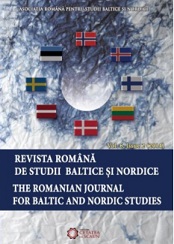The problem of the application of the term second serfdom in the history of Central Eastern Europe
The problem of the application of the term second serfdom in the history of Central Eastern Europe
the case of Lithuanian economy in the 16th-19th centuries (until 1861)
Author(s): Darius ŽiemelisSubject(s): Economic history, Modern Age
Published by: Asociatia Romana pentru Studii Baltice si Nordice
Keywords: second serfdom; Lithuanian social economic history; concept of peripheral capitalism; corvée farmstead economy;
Summary/Abstract: In the 16th-19th centuries (until 1861) the term second serfdom is not applied in the investigations of the economic organization of Lithuania. However, the theory of the neo-Marxist capitalist world system (CWS) of the most famous and influential American comparative historical sociology representative I. Wallerstein offers to look at the phenomenon of the second serfdom from a global perspective emphasizing external causes and to consider it a manifestation of peripheral capitalism in Central Eastern Europe. In his fundamental work The Modern World System, the Polish and Lithuanian social economic order in the 16th-18th centuries is treated as the periphery of the CWS at that time. The goal of this article is using the access of modern comparative historical sociology to answer the question of whether the term second serfdom is applicable (and if so, when) to describe the economic organization of Lithuania in 1557–1861. The article states that in view of the economic development of Lithuania in 1557–1861 considering an essential component of the CWS theory – the concept of peripheral capitalism, the features of the second serfdom are most distinctly seen in Lithuania not in the 16th-18th centuries (as I. Wallerstein stated), but in the second half of the 18th century – 1861.
Journal: Revista Română de Studii Baltice şi Nordice
- Issue Year: 7/2015
- Issue No: 1
- Page Range: 123-149
- Page Count: 27
- Language: English

